On 'Martyr!' and some notes about Persian Culture
Martyr! - A Fierce Exploration of Loss and Identity
I have always pondered what life is like for immigrant children. Living with two identities, how do they manage? They grow up with different languages, perhaps speaking their mother tongue at home and the local language in society, all while navigating the traditions and beliefs of both their family’s origin and their resident country. And there are so many other challenges—like differences in skin color, religion, or beliefs. How do they identify themselves? As a person from their country of origin, their birth country, or the country they currently live in?
At the same time as an immigrant myself, I often wonder how different I might be if I had migrated at a younger age—perhaps I would be happier or more settled. And ‘Martyr!’ answered most of my questions! After spending a few weeks with Cyrus, the main character of the book, though, I realized that it's not about time or immigration itself. It's about me and my personality. That people like us (Cyrus and I and all the people like us) always have thoughts and concerns about everything that touches our hearts.
This is the first time I've read a book by an Iranian writer in English. My friends often ask why, despite Iran's rich culture and literature, we don't see more of it in the world. This has become one of my concerns—doing something to bring Iranian literature to a wider audience one day.
I am happy to see Kaveh Akbar, an Iranian-American poet and writer, gaining recognition and bringing attention to Iranian literature.
A bit about the book:
‘Martyr!’ is an exploration of the complexities of grief, identity, and the search for meaning through the eyes of ‘Cyrus Shams’, an Iranian-American grappling with the loss of his mother in the tragic downing of Iran Air Flight 655. Kaveh’s prose is a force of nature—raw and poetic in equal measure. He deftly weaves together disparate elements like family history, addiction, art, and philosophy to create a tapestry of immense emotional depth. Cyrus' journey is one of self-discovery as he confronts the shadows of his past and the uncertainties of his future.
While the novel is undeniably painful at times, it is also infused with moments of humor and unexpected beauty. Kaveh's exploration of grief is both honest and compassionate, offering readers a space to grapple with their own losses. As you read Cyrus's story, you'll encounter aspects of Persian culture and literature.
From the beginning lines of the book, I felt like I was home! I resonated with the character—not because we were similar in terms of personality or story, but because I could feel Cyrus with my heart. His concerns and feelings felt like my own. I liked his character so much.
‘Martyr!’ is about love, death, life, and history. It’s about searching meaning for life. And it’s about the people of a country who find that country unwelcoming to their identity. For me, as an Iranian, it’s a book of life! I found Kaveh Akbar’s book astonishing. It’s the kind of book that will stay with you for years.
Read the book and remember that this is a novel by a poet—a poet whose art and poetry are in his blood and identity, from a country of poems!
Some Footnotes:
I think it’s worth knowing about the origin of the main character’s name: ‘Cyrus Shams’
Cyrus (Kourosh, or as mentioned in the book, Koroosh) is the name of Cyrus the Great, the founder of the Achaemenid Persian Empire. Read more from here: Who was Cyrus the Great?
"Cylinder of Cyrus," also known as the "Edict of Cyrus." It is housed in the British Museum and is considered one of the earliest expressions of the concept of human rights.
Shams (Arabic word for Sun)
Shams-i Tabrizi, or Shams al-Din Muhammad, is a enigmatic figure whose life and teachings have cast a long shadow over centuries. Born in Tabriz, Iran, around 1185, he is primarily known as the spiritual mentor and catalyst for the renowned poet Rumi.
While concrete biographical details about Shams are scarce, his influence on Rumi is undeniable. Their meeting in Konya, Turkey, is often described as a cosmic collision. Rumi, a respected scholar and religious leader, found his life transformed under the fiery influence of Shams. The latter, a free-spirited and unconventional mystic, is believed to have ignited a spiritual flame within Rumi that led to the creation of some of the most profound and beloved poetry in history.
Shams' teachings, as reflected in Rumi's work, emphasized the importance of direct experience, love, and the dissolution of ego. He challenged conventional religious and social norms, encouraging individuals to seek truth within themselves rather than relying on external authority.
Despite the profound impact he had on Rumi and the world, Shams remains an elusive figure. His life ended mysteriously, with some accounts suggesting he was murdered. His tomb in Khoy, Iran, has become a pilgrimage site for those seeking inspiration and spiritual connection.
While the exact nature of their relationship and Shams' specific teachings remain open to interpretation, there is no doubt that he was a pivotal force in Rumi's life and, consequently, in the development of Sufi thought and poetry. Shams Tabrizi, the "Sun of Tabriz," continues to illuminate the path of seekers and lovers around the world. Read more here.
Iran Air Flight 655 was a civilian airliner tragically shot down by the USS Vincennes, a United States Navy cruiser, on July 3, 1988. All 290 people on board the Airbus A300 perished in the incident, which occurred during the Iran-Iraq War in a tense and volatile region. The U.S. Navy claimed they mistakenly identified the airliner as an Iranian F-14 fighter jet, leading to the tragic consequences.
I’d like to talk about the origin of the author’s name: Kaveh
The name ‘Kaveh’ holds significant historical and cultural importance in Persian history and literature. It originates from the ancient Persian myth and is most famously associated with ’Kaveh the Blacksmith’ (Kaveh Ahangar), a legendary figure in Persian mythology, particularly in the epic poem, the ‘Shahnameh’ ("The Book of Kings") written by the renowned Persian poet Ferdowsi. You can buy the English translation from Penguin: Shahnameh
Kaveh the Blacksmith is the Symbol of Resistance and Freedom
Kaveh is celebrated as a symbol of resistance and the fight for freedom against tyranny. According to the Shahnameh, during the reign of the ruthless and oppressive king Zahhak, who had serpents growing from his shoulders that required human brains for sustenance, Kaveh emerged as a hero. Zahhak had ruled for a thousand years, during which time he inflicted great suffering on his people.
Kaveh, a humble blacksmith, had lost many of his sons to Zahhak's cruelty. When the king demanded the brain of Kaveh's last remaining son, the blacksmith could endure no more. He rebelled, leading a popular uprising against Zahhak. In a powerful act of defiance, Kaveh raised his leather blacksmith apron on a spear, turning it into a banner that became known as the ‘Derafsh Kaviani’ (Kaveh’s Banner), a symbol of the people's resistance and unity.
Kaveh's revolt marked the beginning of the end for Zahhak's tyrannical reign. He led the people to overthrow Zahhak and restore justice by helping the rightful heir, ‘Fereydun’ , ascend to the throne. Kaveh’s story is a timeless tale of courage, sacrifice, and the triumph of good over evil.
Kaveh in Modern Context
The name Kaveh continues to be popular in Iran and among the Persian diaspora, embodying the ideals of bravery, freedom, and resistance against oppression. It serves as a reminder of the power of ordinary individuals to stand up against tyranny and fight for justice.
In literature, politics, and even modern Iranian culture, Kaveh remains a potent symbol. His story has inspired countless works of art, literature, and even political movements. For Iranians and those familiar with Persian culture, the name Kaveh is more than just a name—it is a legacy of heroism and the enduring spirit of resistance.
Would you like me to write more about Persian culture and literature?
Thanks for reading☺️ If you liked this review, press ❤️ and share it with your friends!



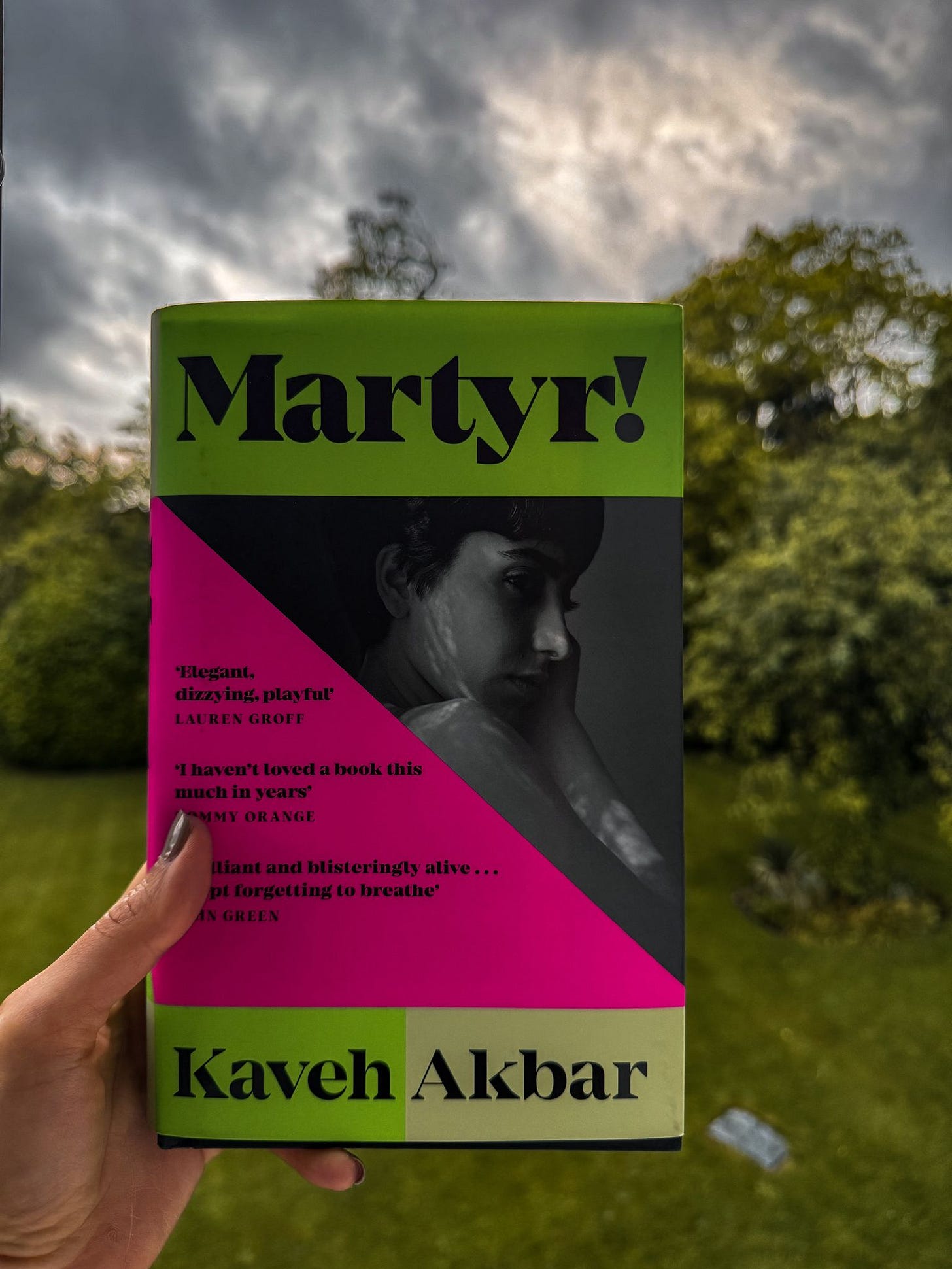
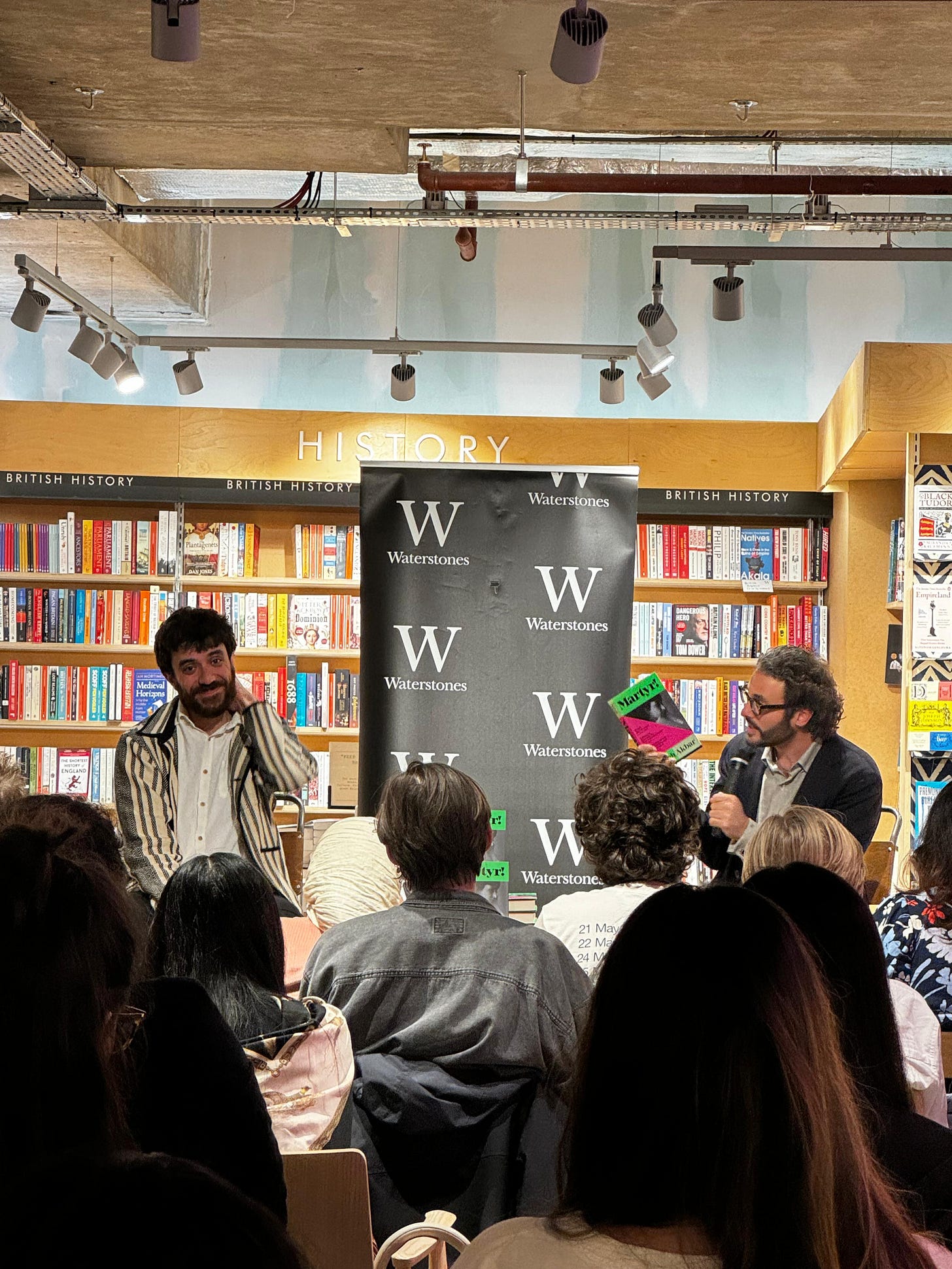
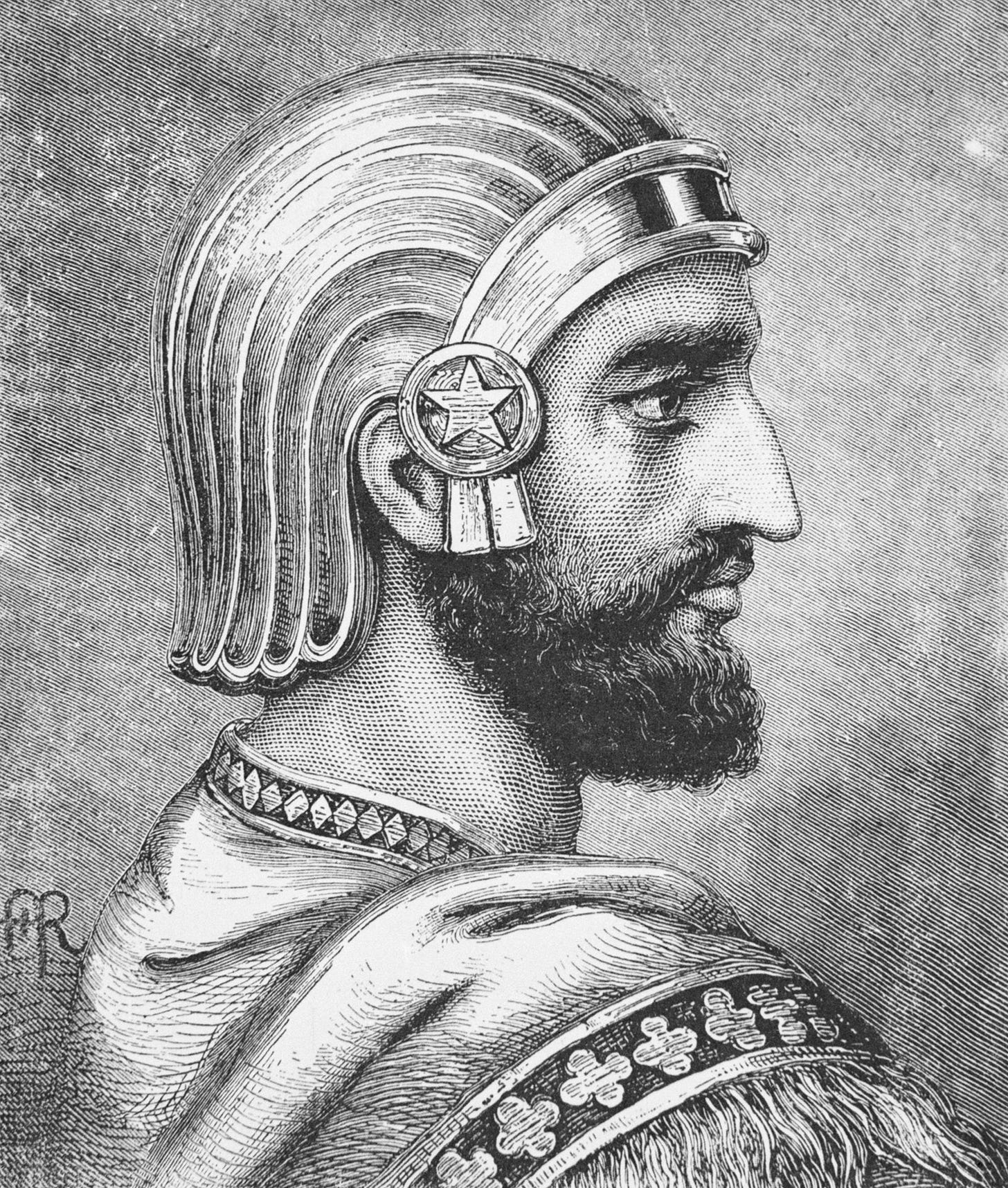
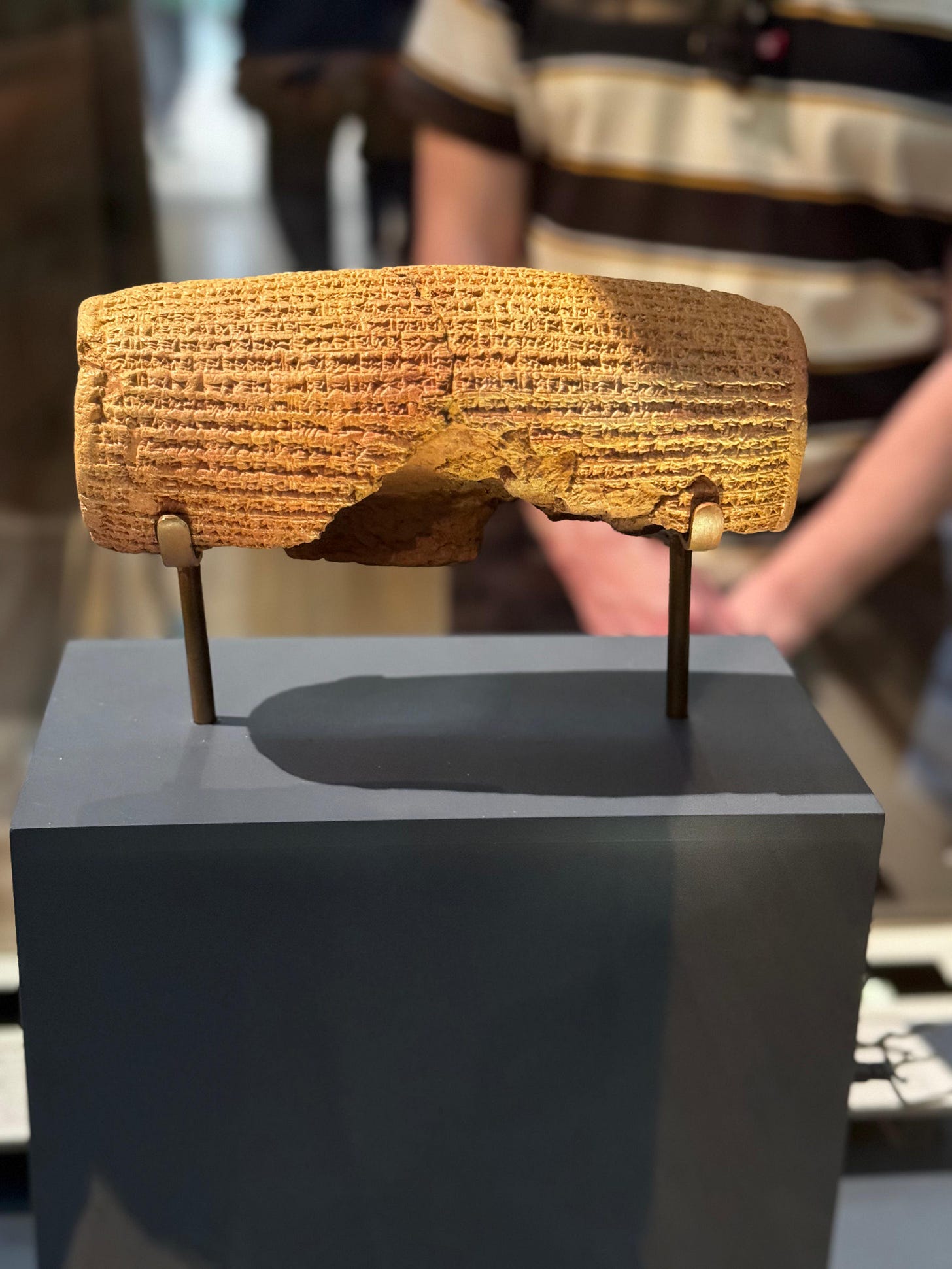
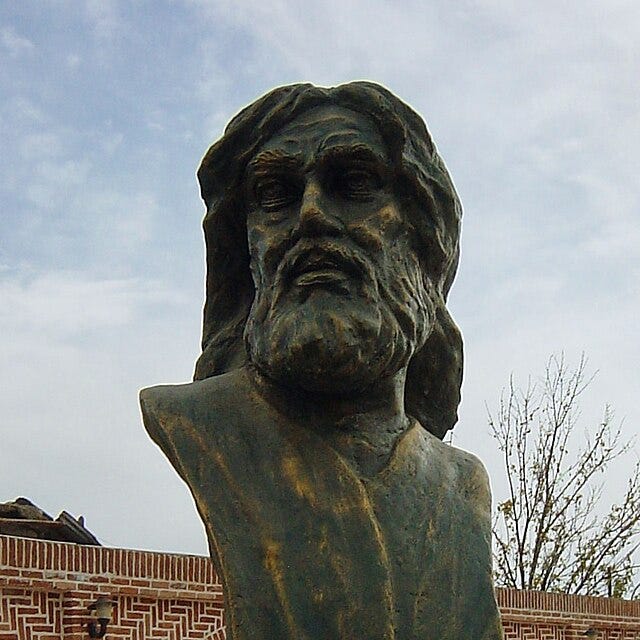
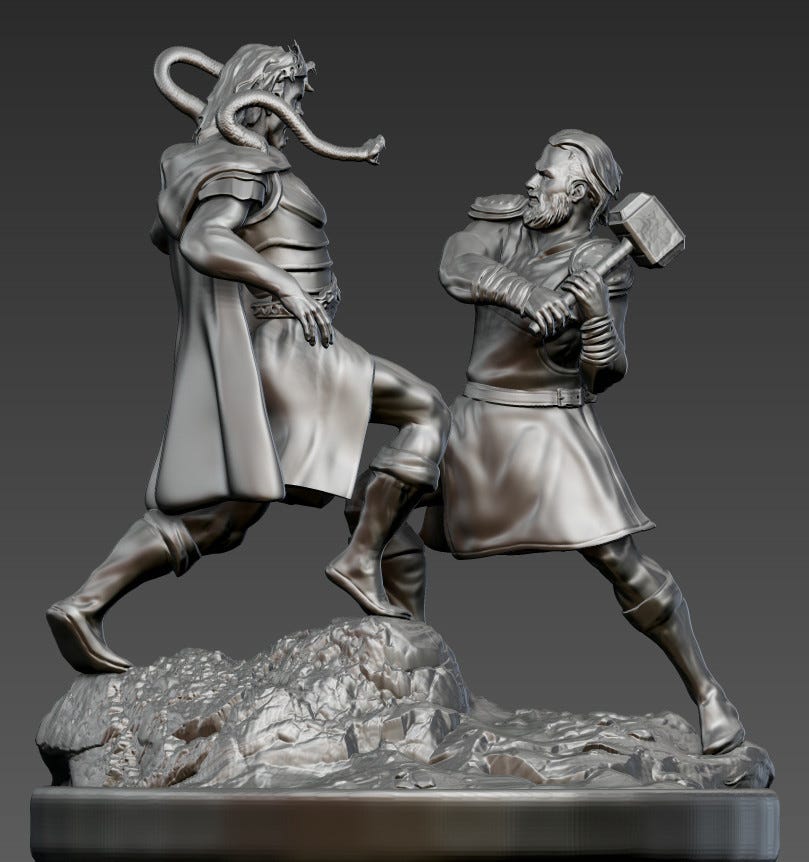
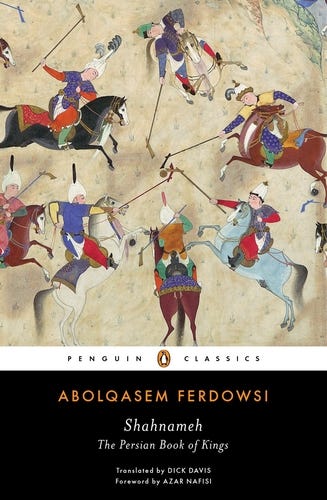
Very informative, especially the bits about Shams and Kaveh. The nephew of good friend (from a Persian family) is called Cyrus. He's a very cocky chess player but likeable 😂 I just wanted to share that.
Thank you for sharing this deep dive Shideh! You're right - the book is definitely on my list now 😉
Also wondering if you have read Elif Shafak's The Forty Rules of Love? a meandering tale, with lots of Rumi 🧡